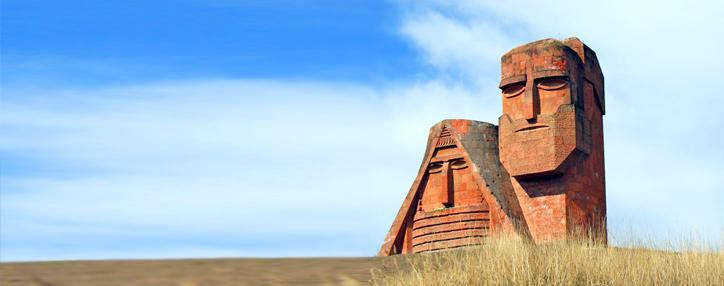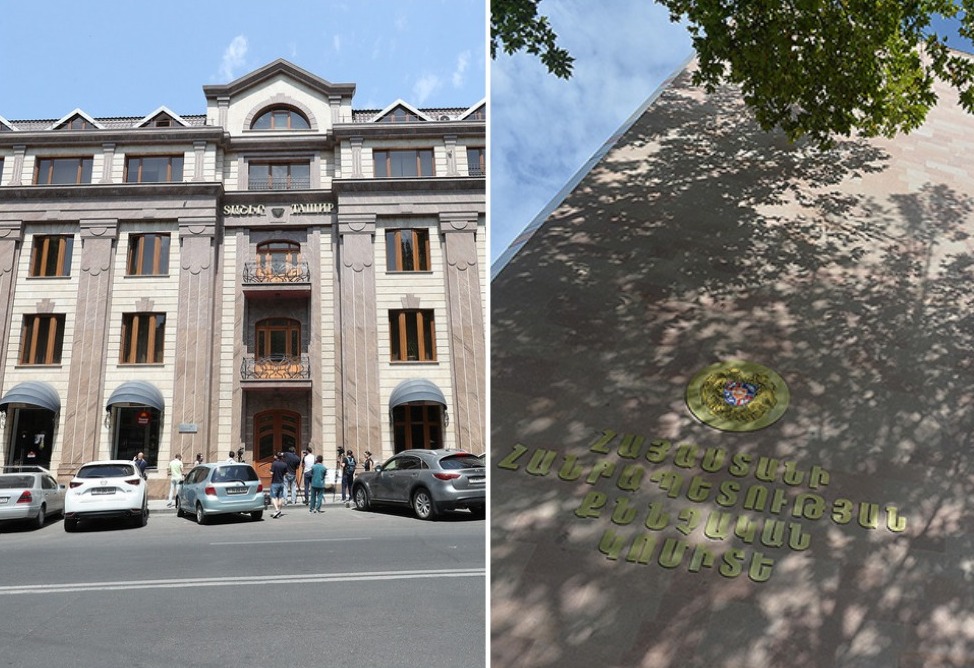If there is now a large-scale war, Armenia must recognize Karabakh’s independence – Sargsyan
19.08.2020,
14:50
Armenia is obliged to recognize the independence of Nagorno-Karabakh if there is a large-scale war, Serzh Sargsyan, a former Armenian president, said Wednesday at a news conference.

YEREVAN, August 19. /ARKA/. Armenia is obliged to recognize the independence of Nagorno-Karabakh if there is a large-scale war, Serzh Sargsyan, a former Armenian president, said Wednesday at a news conference.
Sargsyan was asked why, during the April 2016 war in Artsakh, he did not fulfill his promise made in 2015 at the UN, when he said that if Azerbaijan continues its aggressive policy, Armenia will be left with no option but to take legal steps towards Artsakh.
Sargsyan noted that he remembers well all his statements, "but let's agree that I did not say that we recognize the independence of Nagorno-Karabakh on the very first day of the war."
"Thank God, the hostilities lasted only four days. If they continued, we would definitely recognize the independence of Nagorno-Karabakh, because it would become obvious that we are decisive in fulfilling our promise to the people that the Armed Forces of Armenia are the guarantor of the security of NK and Armenia will do everything to protect the population of Nagorno-Karabakh,” he said.
In this regard, he stressed that even today he is sure that if there is now a large-scale war, Armenia must recognize the independence of Nagorno-Karabakh.
"This should be a justified decision based on the situation," Sargsyan added.
He added that excessive impetuosity in this issue could hinder further diplomatic successes of Armenia.
“And I think there is no doubt that this four-day war later became our diplomatic victory,” the former president summed up.
About April War
From 2 to 5 April 2016, the Azerbaijani army conducted active hostilities, shelling positions and settlements of the Nagorno-Karabakh Republic practically along the entire line of contact with the use of rocket and artillery weapons, armored vehicles and aviation. The Artsakh (Karabakh) army successfully suppressed the aggressive actions of the enemy, as a result of which the Azerbaijani side suffered serious losses in manpower and equipment.
About Karabakh Conflict
Karabakh conflict broke out in 1988 when Karabakh, mainly populated by Armenians, declared its independence from Azerbaijan.
On December 10, 1991, a few days after the collapse of the Soviet Union, a referendum took place in Nagorno-Karabakh, and the majority of the population (99.89%) voted for secession from Azerbaijan.
Afterwards, large-scale military operations began. As a result, Azerbaijan lost control over Nagorno-Karabakh and the seven regions adjacent to it. Some 30,000 people were killed in this war and about one million people fled their homes.
On May 12, 1994, the Bishkek cease-fire agreement put an end to the military operations.
Since 1992, talks brokered by OSCE Minsk Group are being held over peaceful settlement of the conflict. The group is co-chaired by USA, Russia and France. -0---
Sargsyan was asked why, during the April 2016 war in Artsakh, he did not fulfill his promise made in 2015 at the UN, when he said that if Azerbaijan continues its aggressive policy, Armenia will be left with no option but to take legal steps towards Artsakh.
Sargsyan noted that he remembers well all his statements, "but let's agree that I did not say that we recognize the independence of Nagorno-Karabakh on the very first day of the war."
"Thank God, the hostilities lasted only four days. If they continued, we would definitely recognize the independence of Nagorno-Karabakh, because it would become obvious that we are decisive in fulfilling our promise to the people that the Armed Forces of Armenia are the guarantor of the security of NK and Armenia will do everything to protect the population of Nagorno-Karabakh,” he said.
In this regard, he stressed that even today he is sure that if there is now a large-scale war, Armenia must recognize the independence of Nagorno-Karabakh.
"This should be a justified decision based on the situation," Sargsyan added.
He added that excessive impetuosity in this issue could hinder further diplomatic successes of Armenia.
“And I think there is no doubt that this four-day war later became our diplomatic victory,” the former president summed up.
About April War
From 2 to 5 April 2016, the Azerbaijani army conducted active hostilities, shelling positions and settlements of the Nagorno-Karabakh Republic practically along the entire line of contact with the use of rocket and artillery weapons, armored vehicles and aviation. The Artsakh (Karabakh) army successfully suppressed the aggressive actions of the enemy, as a result of which the Azerbaijani side suffered serious losses in manpower and equipment.
About Karabakh Conflict
Karabakh conflict broke out in 1988 when Karabakh, mainly populated by Armenians, declared its independence from Azerbaijan.
On December 10, 1991, a few days after the collapse of the Soviet Union, a referendum took place in Nagorno-Karabakh, and the majority of the population (99.89%) voted for secession from Azerbaijan.
Afterwards, large-scale military operations began. As a result, Azerbaijan lost control over Nagorno-Karabakh and the seven regions adjacent to it. Some 30,000 people were killed in this war and about one million people fled their homes.
On May 12, 1994, the Bishkek cease-fire agreement put an end to the military operations.
Since 1992, talks brokered by OSCE Minsk Group are being held over peaceful settlement of the conflict. The group is co-chaired by USA, Russia and France. -0---



